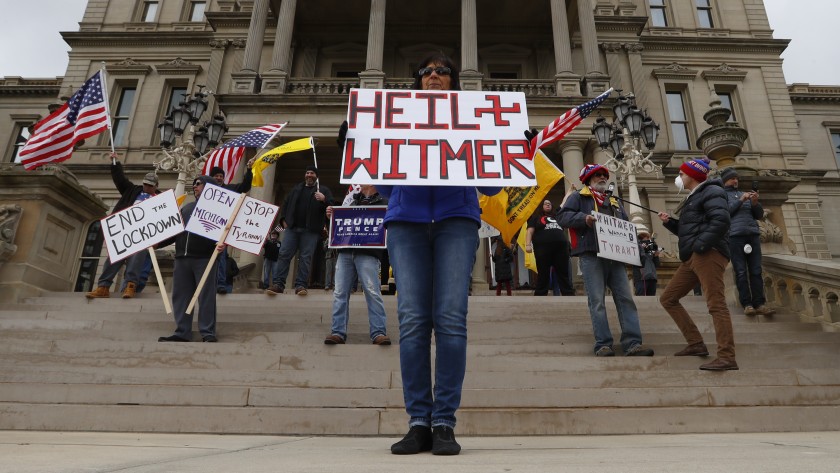Thank God, it’s over. The radical right is retreating back to the dank, dark, fetid corner from which it sprang 30 years ago. The wreckage they’ve wrought has left a nation unable to govern, an economy that will be wobbly for years, a president drained of credibility, and a capable nation doubting its own creativity and strength.
But if there’s one enduring value to the meltdown in leadership in Washington and the financial markets in New York it’s this: The cynical, hypocritical, dangerous ideology of the right has been exposed for the fraud it is. Though it involves money and credit and financial transactions I know nothing about, the credit crunch seems like the natural disasters I periodically reported on over the years.
Like a flood, a torrent of history and economics has drowned institutions that seemed untouchable only a year ago. Like fire, the financial crisis has raced through the White House and both houses of Congress, through the Fed and the Treasury, burning through the old forest of lies and making way for new leadership, new values, new goals. Like a category 5 hurricane, the foolishness of stripping away oversight, and removing sound management has blown through the bank accounts of the rich, and torn through the pension assets of the working class.
We all are paying a price. But our sympathies should lie only with those who steadfastly warned of the mess and resisted the right wing’s manifest lies.
In the 1990s I learned that it was absolute silliness to be sympathetic with the right. At the time the Michigan Land Use Institute, the organization I founded, was battling toe to toe with the free market governor, John Engler, his allies in the energy industry, and a group of movement ideologues who’d taken over the state Department of Environmental Quality. The issues were safety, environmental security, and fairness. Engler had essentially unbridled the natural gas industry, made millions of acres available for them to drill new wells, ignored environmental safeguards, bullied local governments that complained, and privately negotiated an agreement that led the industry to reduce royalty payments to thousands of families even as the value of gas increased. They did this all under the banner of the “free market,” deregulation, property rights, government-has-no-business-being-involved-in-business messaging that had brought Reagan and his acolytes, Engler among them, to power.
The gas industry’s behavior caused a furor in Montmorency, Otsego, and Antrim counties. I received five to ten calls a day from working people who’d been pushed around, or whose drinking wells had been damaged, or whose livestock had been injured by oil company trucks, or whose royalty checks had unexpectedly declined. They asked for help and we provided a lot of expertise in how to respond. But after a while I got accustomed to asking the callers who they voted for. And invariably they told me John Engler. I’d have to explain to them there really wasn’t much more we could do. They’d voted for the one-sided, anti-consumer, anti-environment, industry insider conduct that was now knocking them around.
It’s been hard to make that case with working people. But it’s true. The Crandall Canyon mine collapse in Utah that killed six miners and three rescuers in 2007 can be directly traced to the disinterest and disinvestment in regulating mine safety, the result of Republican ideology. The mine was located in a red county, and miners and the families of those who died had essentially voted for the hands off practices that contributed to their deaths.
Same with the chemical plant and refinery explosions that killed workers in Texas and the Deep South over the last 25 years. The weakening of work safety rules, the lack of enforcement, the disinterest in protecting people in dangerous jobs is a hallmark of Republican government, and has been so for nearly 30 years. But the installations that exploded were located in red counties. The men and women who died were red voters. Their families supported the Republican way of government that contributed to the deaths of those they loved.
The link between Republican values and personal disaster just hasn’t broken through until September 2008. Now there is no mistaking the consequences of a government narrative, aimed at working families, that substituted distractions — abortions and guns and gays — for the hard work of sound policy and careful fiscal management. With clever words designed to foster false resentments, Republicans masterfully fooled people into thinking that they shared something with the rich; that tax cuts, deregulation, property rights, and smaller government would actually make their lives better. Mix in racism, sexism, anti-semitism, and an abiding willingness to lie. It was a powerful witch-promoting brew.
Now it’s done. The cleansing will be painful. But at least we know that what lies ahead will be different and better.




One thought on “Radical Republican Economics: The End”